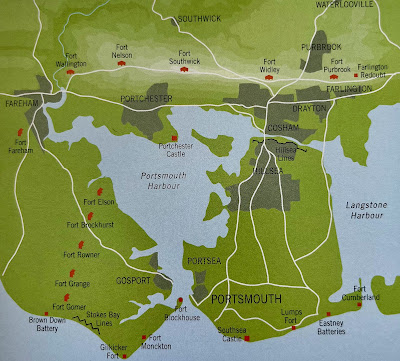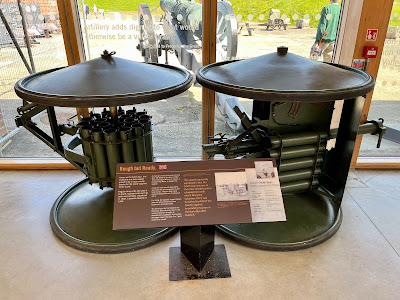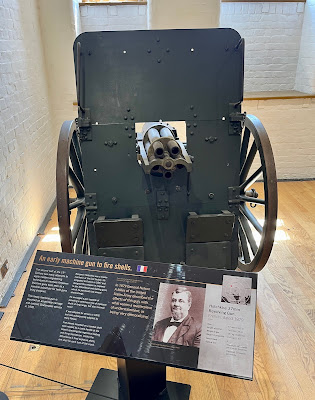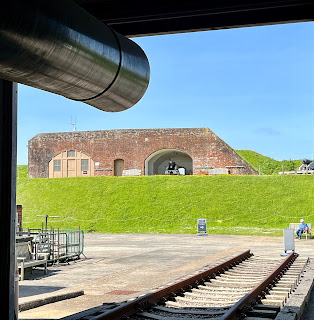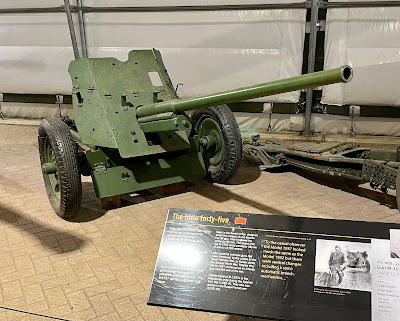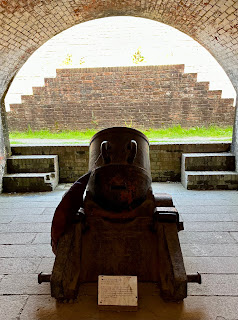My latest wargame project is the Turkish force that fought in the Korean War. I would prefer to do this in 28mm using the Warlord figures. However, painting vast numbers of North Korean and Chinese opponents was just too dull to contemplate. So, I have gone for 10mm, primarily using Pendraken figures with armour from Skytrex. This has the advantage of using some of my WW2 figures as well.
 |
| Three infantry platoons and a mortar platoon |
The Korean War started on 25 June 1950 when North Korean forces invaded South Korea. They drove South Korean and US troops back into the Pusan perimeter before a US landing at Inchon forced a withdrawal. The US pushed into North Korea, which brought the Chinese into the conflict, pushing them back to the 38th Parallel. This ended the mobile phase of the war, and both sides dug in for a static war of attrition.
Turkey had been refused membership of NATO but was invited to provide troops. The first Turkish contingent arrived on 19 October 1950 and, in varying strengths, remained until the summer of 1954. The First Turkish Brigade (code name 'North Star'), 5,455 strong, was commanded by Brigadier General Tahsin Yazic. He was a veteran of Gallipoli in the First World War and commanded the first Turkish tank battalion in 1937. The Brigade was drawn mainly from the 28th Division and consisted of three infantry battalions from the 241st Infantry regiment, the 2nd Armoured Brigade Artillery Battalion, Light AA Battalion and support units.
They advanced into North Korea with the 25th US Division. The Turkish Brigade was attacked by superior enemy forces in Wawon, Kaechon, Kunu-ri, and the Sunchon Pass regions. They fought for three days and were encircled several times, each time breaking out successfully. What was left of the Turkish Brigade was moved south to recover and reorganise. They then participated in Operation Thunderbolt in January 1951, attached to IX Corps. This led to another fierce battle around Hill 151. The Second Turkish Brigade (Brigadier General Namik Argue) relieved them in July 1951. In turn, they were relieved by the Third Brigade in July 1952 and then by the Fourth Brigade in September 1953. The replacement brigades saw less action and fewer casualties as the war had moved to the military stalemate phase.
14,936 Turkish troops served in Korea, suffering 3,506 casualties (23% of troops committed), including 741 killed. They were generally considered the best of the smaller UN contingents, particularly in defence and close combat, when they drew long knives. Max Hastings explains, ‘Among the most prominent contributors, the Turks sent a much-respected infantry brigade, whose men were evidently uninterested in higher tactics or sophisticated military skills, but possessed much rugged courage and willingness to endure.’ Turkey's contribution helped their application to join NATO, which was approved in 1952.
The Turkish Brigade arrived in Korea wearing their British-supplied WW2 battledress and helmets. However, after the early battles, their uniforms, helmets and equipment were entirely American, with their own brigade device (red spearhead with white stars) on the right side of the helmet and a national badge (red circle with a white star and crescent) on the top of the right sleeve. This means you can use US models. The helmet and sleeve flashes could only be seen with a magnifying glass at this scale!
 |
| 105mm Howitzers |
 |
| The Turks sent no tanks with the Brigade to Korea. So armour would be attached from US units. Here are two Pershings and two Chafee tanks with a jeep-mounted MG for recon. |
I will use Blitzkrieg Commander rules for this conflict. Pendraken has published a supplement for the Korean War, The Forgotten War, with some rule additions to reflect the actions and doctrine unique to this war. The field hospital option (MASH TV style) is going to be a must have! It includes a scenario for the Battle of Wawon (27-29 Nov. 1950) and army lists. I would also recommend The Wargamer's Guide to the Korean War 1950-53 by Tom Nutt, published by Reiver Castings. I bought these from the guys running a lovely game at Salute, which inspired me to get on with this project.
There are two quite old (1980s) Osprey's. The Korean War 1950-53 by Nigel Thomas (I now have a spare if anyone needs it) and Armour of the Korean war 1950-53 by Simon Dunstan. The colour plates are useful, and I experimented with many shades of green/grey to get something close to the faded US combat dress. For further reading on the Turkish brigade I consulted the following:
A.Tetik, North Star: Turkish Brigade in Korea, (Turkish Military History, No.87, 2007)
A.Fanning, Turkish Military in the Korean War, (Texas Tech University, 1993)
M.Hastings, The Korean War: An Epic Conflict 1950-1953 (Pan Macmillan, Kindle edition)
H.Danisman, Situation Negative: Korea 1952. An Account of Service with the Turkish Brigade, (Denizler Kitabevi, Istanbul, 2002)










